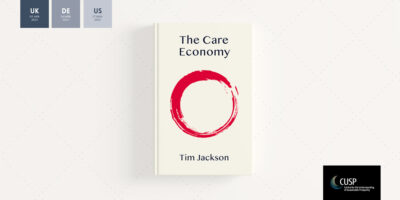Predatory financial tactics are putting the very survival of the UK care system at risk
The competitive, for-profit model means investor returns have become more important than quality care and worker pay, Christine Corlet Walker writes in her opinion piece for the UK’s The Guardian, summarising the recent CUSP working paper on ‘careless finance’.
Op-ed by CHRISTINE CORLET WALKER

The crisis in social care in the UK does not have just one cause, nor one simple solution. Chronic underfunding, an ageing population, the Brexit-induced labour shortage and the devastation wreaked by Covid-19 have all played a part. But the problems forcing the care system to the brink of collapse don’t just come from a series of exogenous shocks – they are internal too. The very structure of the sector is unstable.
The growing involvement of private equity, hedge funds and real estate investment trusts in the care sector in recent decades has brought about a rise in the use of predatory financial techniques, justified in the name of enticing capital into a sector that the government has persistently failed to adequately fund. According to data from the Care Quality Commission, these firms now own one in eight care home beds in England.
A screen of financial jargon helps investors avoid public scrutiny, but a slew of recent reports has begun to detail the many tactics used to ensure “healthy” returns on investment – and the profound and troubling consequences that these strategies have for the care sector.



